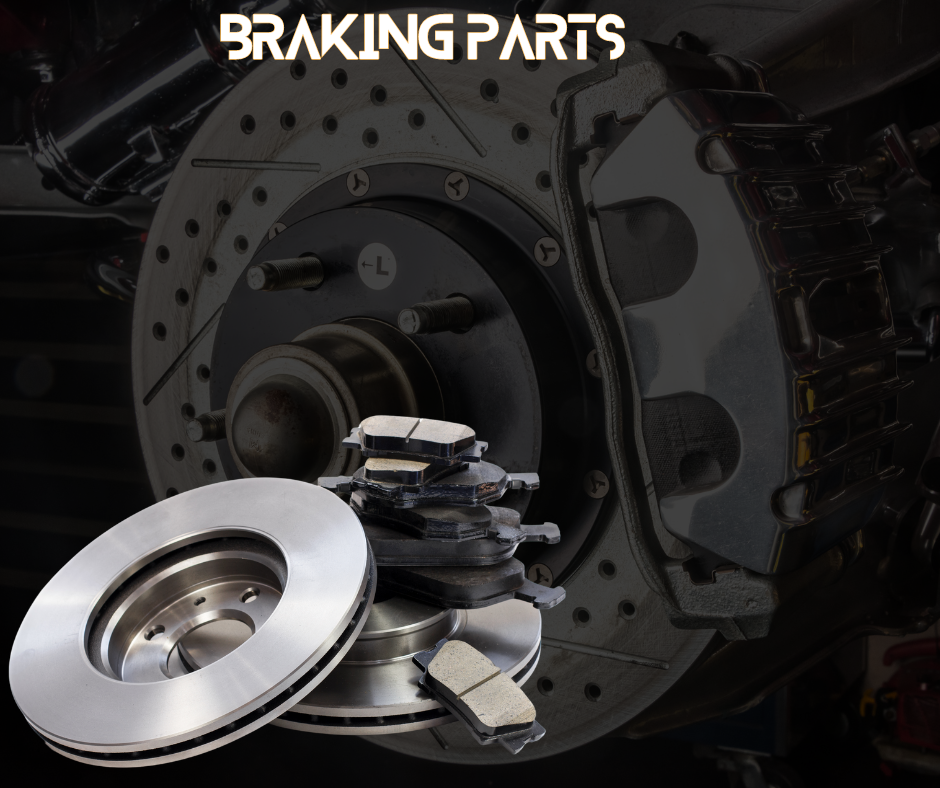The 5 Most Common Signs of Brake Wear You Can’t Ignore

Your car’s brake system is one of the most critical safety features, and when it starts showing signs of wear, your entire driving experience can be compromised. Ignoring the warning signs could lead to costly repairs—or worse, a dangerous situation on the road. Let’s break down the five most common signs that your brakes need attention and why it’s crucial to address them sooner rather than later.
1. Squealing or Screeching Sounds
One of the earliest signs your brakes are wearing down is a high-pitched squeal when you press the brake pedal. This noise usually comes from a small metal indicator embedded in the brake pad. It’s designed to make noise when your pads are getting thin, acting as an audible alert that it’s time for a replacement.
Why it matters: Ignoring this sound can lead to the brake pads wearing down completely, which could damage the rotors and lead to a much more expensive repair.
2. Grinding Noise
If you’ve already passed the squealing phase and now hear a grinding noise, you’ve likely worn through your brake pads completely. The sound you’re hearing is metal-on-metal contact, which can cause significant damage to the rotors.
Why it matters: Driving with metal-on-metal contact not only makes stopping your vehicle more difficult but also damages the rotors, calipers, and other parts, increasing your repair costs.
3. Vibration or Shaking Steering Wheel
If your steering wheel shakes or vibrates when you apply the brakes, it could indicate warped rotors. Rotors can become uneven due to excessive heat, usually from heavy braking or driving in mountainous areas. The warped surface causes your brake pads to make uneven contact, leading to that vibration.
Why it matters: Warped rotors not only affect your ability to stop smoothly but can also wear out your brake pads unevenly, further reducing your vehicle’s stopping power.
4. Brake Pedal Feels Soft or Spongy
If you notice that your brake pedal feels softer than usual or it sinks closer to the floor when you press it, there could be an issue with the brake fluid, such as air in the brake lines, or a leak in the brake system.
Why it matters: A soft brake pedal can reduce the effectiveness of your braking system, which means you’ll need more distance to come to a complete stop. This can be extremely dangerous, especially in emergency situations.
5. Your Car Pulls to One Side When Braking
If your car pulls to one side when you apply the brakes, it could indicate uneven wear on your brake pads or a stuck caliper. It could also be caused by brake fluid contamination or issues with the brake lines.
Why it matters: A vehicle that pulls to one side when braking is harder to control and can put you at risk for accidents, especially at higher speeds or on slippery roads.
Why Regular Brake Maintenance is Key
Your brake system is your car’s first line of defense when it comes to safety. Catching these warning signs early can save you money on more extensive repairs and ensure your vehicle stops when you need it to. Regular maintenance and inspections can help you avoid dangerous situations and keep your braking system in top shape.
If you're experiencing any of these symptoms, don’t wait! Visit Sparesworld for top-quality brake pads, rotors, and expert advice to keep your vehicle running safely. Regular brake checks and timely replacements are vital for both your wallet and your peace of mind.
Ready to upgrade your brake system? Visit Sparesworld to shop our range of high-quality brake components or consult with our experts for professional advice!

 Loading..
Loading..